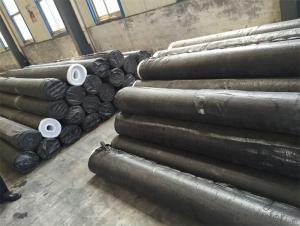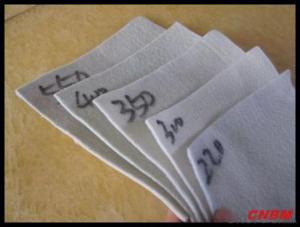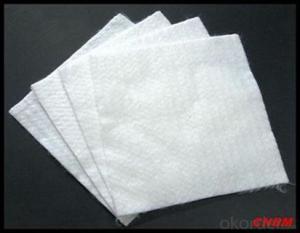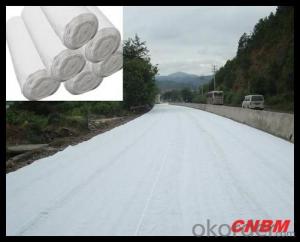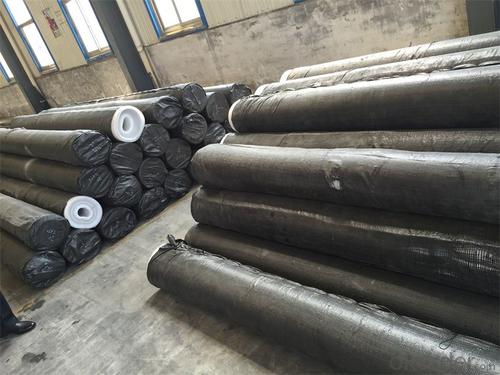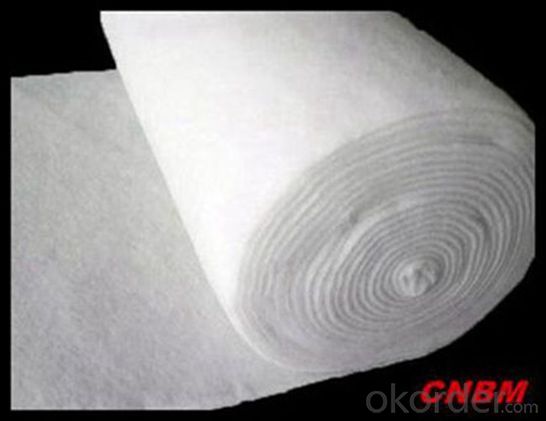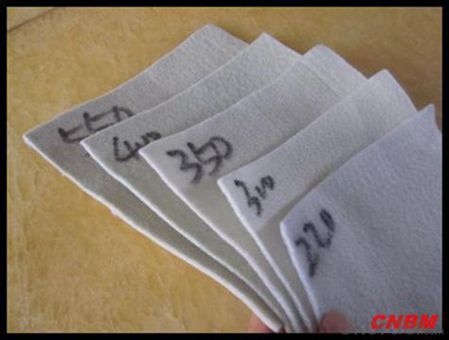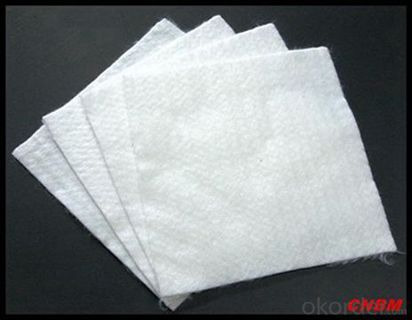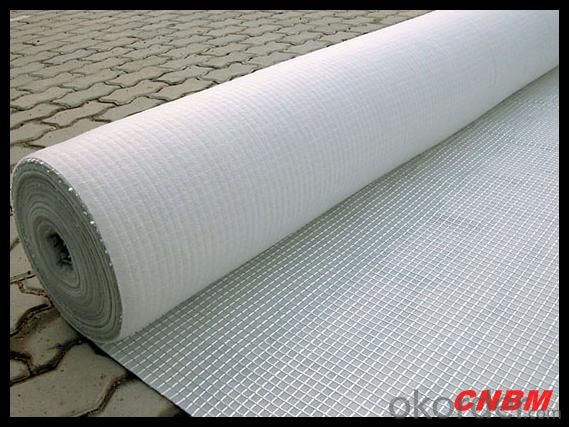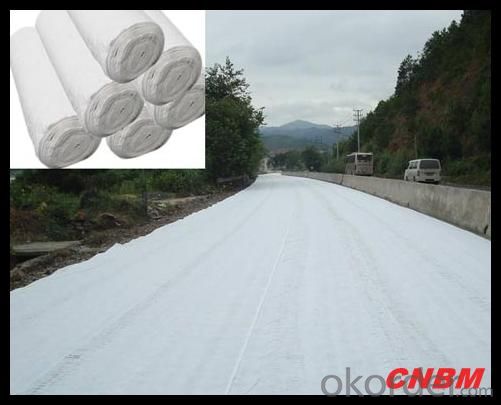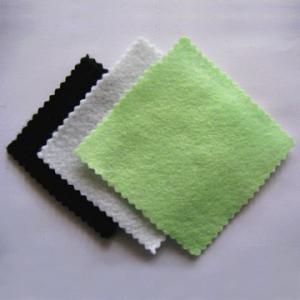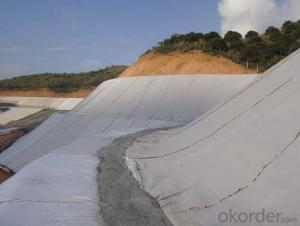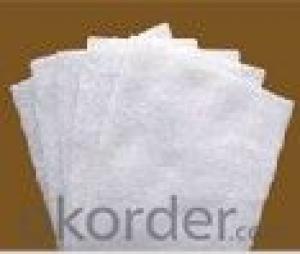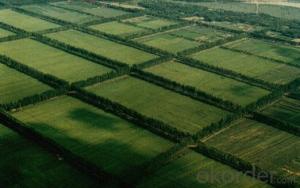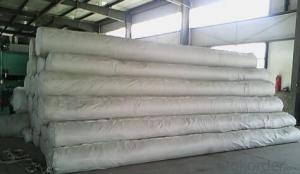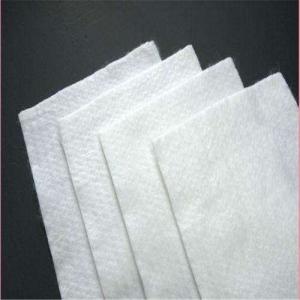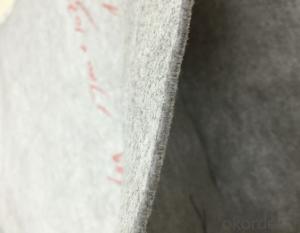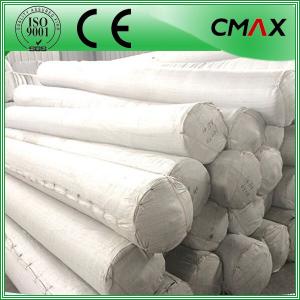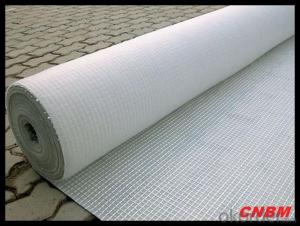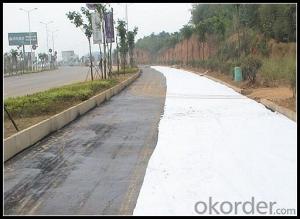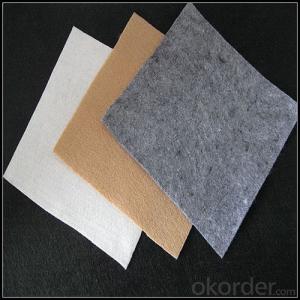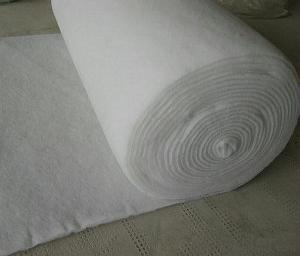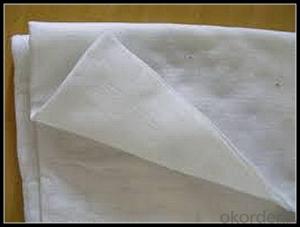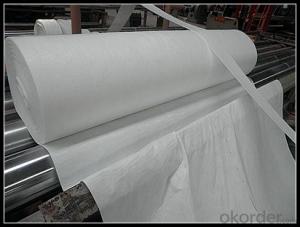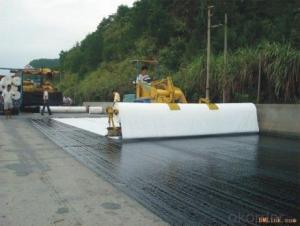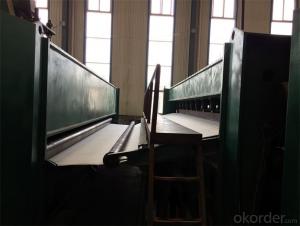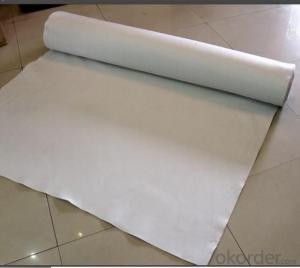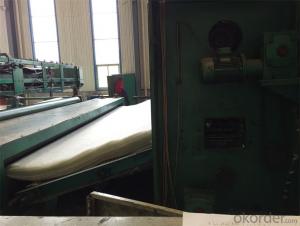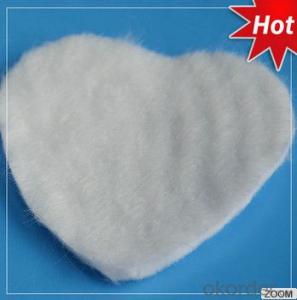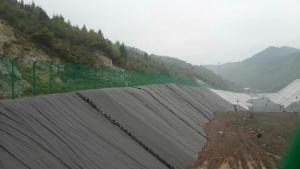Geotextile Gravel Driveway Road Building Constructive Felt Fabric Price Per M2
- Loading Port:
- China main port
- Payment Terms:
- TT OR LC
- Min Order Qty:
- 1000 g/m²
- Supply Capability:
- 1000000 g/m²/month
OKorder Service Pledge
OKorder Financial Service
You Might Also Like
Specification
Made from polyester(PET)short fiber by nonwoven needle punched manufacturing process, it has isolation, filteation,drainage, reinforcement, protection and maintenance etc. function.
Specification:
Mass Per Unit Area: 100-900g/m2
Fiber Type: Staple fiber
Color: White, Black, Grey etc.
Width Range: 1-6m
Length: as consumer request
Weight: 200g/m2--800g/m2Width: 1m-4m
Length: 30m-60m
Color: Any colors available or customers colors
Packing: Transparent polybag or White PP woven bag
Technics: Needle punchded/non woven
Productivity: More than 10000 sqms/day
Place of origin: Shandong, China
Load quantity Around 4000-12000m2 in 1x20ft
container,Around 17000-30000m2 in 1X40HQ container
Delivery time: Within 25-30 working days after receiving your advance money
Payment term: T/T, L/C,D/PPort: Qingdao, China
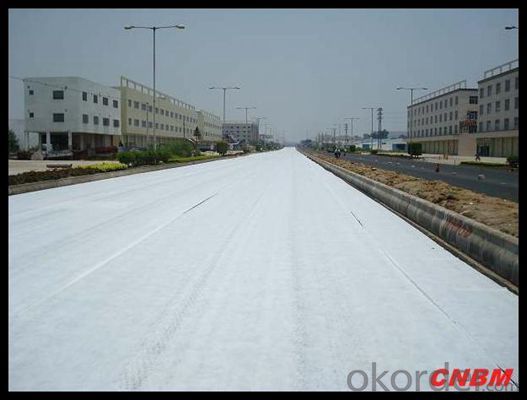
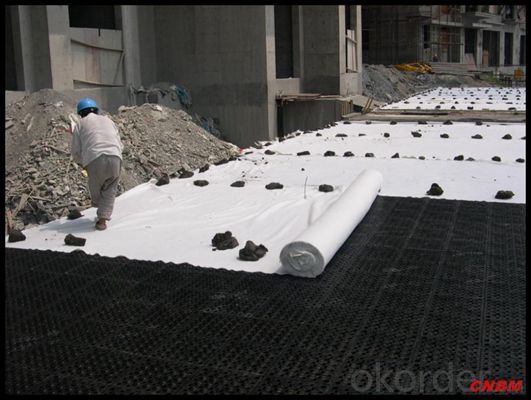
1.On a regular basis or as per your request,we entrust national testing agencies to conduct quality inspections
2. Strictly in accordance with the ISO9001-2008 international quality system standard,we monitor and manage the whole process throughout production,quality testing,and measurement to ensure product quality
3. For quality-related construction delay or substandard construction(except for damage or losses due to customer’s responsibility or irresistible natural disasters),we have refunding,replacement,and repair services.We will respond to customers’ feedbacks on quality issues within 24 hours.
After-sales service
1.In order to provide customers with comprehensive technical support,we will provide technical and other related information upon request in a timely manner.
2.In required,we will appoint specialized technicians to the construction site to give technical trainings to construction people,and offer technical guidance throughout the whole construction process.
3.For damage due to shipment and delivery,after we receive the complaint,we will check the issure through provided pictures and videos.If our responsibility is confirmed,we wil offer free replacement.
4.When the construction is completed,as your request,our technical staff may participate in the final acceptance.
FAQ:
Q: What kind of payments does jenor support?
A: T/T, L/C, Cash are accepted.
Q: Do you charge for the samples?
A: Accordeing to our company policy, the samples are free, we only charge the freight fee. And we will return the freight fee during the next order.
Q: Can you produce according to customers' design?
A: Sure, we are professional manufacturer, OEM and ODM are both welcome.
Q: Do you have other products?
A: Yes, please check the pictures:
- Q: How do geotextiles help in sediment control?
- Geotextiles help in sediment control by acting as a barrier that prevents soil erosion and the movement of sediment. They are designed to allow water to pass through while trapping sediment particles, thus reducing the amount of sediment that flows into nearby water bodies. Additionally, geotextiles can be used in combination with other erosion control practices to stabilize soil, promote vegetation growth, and minimize the impact of sediment runoff on the environment.
- Q: 300g / m2 geotextile package is what it means
- 300g / m2 Geotextile: refers to the weight of 300g per square meter (model) 300g / m2 geotextile package: refers to the outsourcing; with 300g of geotextile to wrap something; for example: With 300g / m2 geotextile wrapped gravel. The
- Q: 400g / m2 two cloth a layer of water permeable geotextile technical requirements
- Two cloth a film will not be permeable, the composite film index breaking strength 5kn top broken 1.1kn tear 0.15kn peel 6n / cm or substrate fracture without stripping, the current 2008 standard weight has not been required, the original standard For not less than 360 grams
- Q: Geotextile is what is the role to play with what?
- Geotextile can seep water penetration, this argument is wrong, geotextile itself does not have isolation seepage function, only in the geotextile above the composite geomembrane after it has anti-seepage function, this product is called composite geomembrane, not called Geotextile, geotextile function is the water, the water can be easily through the geotextile, but all the impurities inside the water to stay in the geotextile above, and play a filtering effect, so geotextile also known as anti-geotextile.
- Q: Can plant roots penetrate geotextiles? Which kind of similar material can keep soil and water and let the plant roots pass through it?
- Of course. The roots of plants are omnipotent, and it has a strong vitality. It is small, but its power is infinite. It is also because it is small, it makes it seamless no omnipotent. It can wear the river across the sea, it can wear stone to break the ground, it is powerful you can not imagine, you do not see the cliffs on the grass, the king did not see the plow of the fern leaves!
- Q: What are the different geotextile reinforcement techniques?
- Some of the different geotextile reinforcement techniques include geotextile fabrics, geogrids, geocells, and geocomposites. Geotextile fabrics are permeable fabrics made from synthetic materials and are used to stabilize soil and prevent erosion. Geogrids are high-strength materials that are used to enhance the stability of soil by providing tensile reinforcement. Geocells are three-dimensional honeycomb-like structures made from geotextile materials and are used for soil stabilization and erosion control. Geocomposites are combination products that consist of different geotextile materials and are used for various reinforcement applications, such as drainage, filtration, and separation.
- Q: Geotextile tensile strength of the maximum load is generally how much
- What specifications of the geotextile? Is the filament or the short wire or the woven geotextile?
- Q: How do geotextiles help in preventing soil erosion in agricultural fields?
- Geotextiles help prevent soil erosion in agricultural fields by acting as a barrier between the soil and the erosive forces such as water and wind. They provide stabilization and reinforcement to the soil, reducing the risk of erosion. Additionally, geotextiles improve water infiltration, reduce surface runoff, and enhance soil moisture retention, promoting healthier plant growth and preventing soil loss.
- Q: Are geotextiles suitable for use in coastal erosion control?
- Yes, geotextiles are suitable for use in coastal erosion control. They can effectively stabilize soil, prevent erosion, and promote vegetation growth in coastal areas. Geotextiles provide a barrier against wave action and help to retain sediment, reducing the rate of erosion and protecting shorelines from further degradation.
- Q: Do you need to use geotextile for construction site? Mainly used where?
- Underground garage roof green
Send your message to us
Geotextile Gravel Driveway Road Building Constructive Felt Fabric Price Per M2
- Loading Port:
- China main port
- Payment Terms:
- TT OR LC
- Min Order Qty:
- 1000 g/m²
- Supply Capability:
- 1000000 g/m²/month
OKorder Service Pledge
OKorder Financial Service
Similar products
Hot products
Hot Searches
Related keywords
